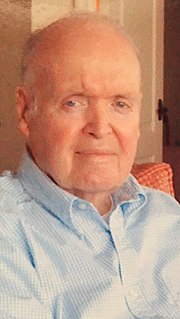A Quote by Eugene Kennedy
Life does not hurt nearly as much if we have learned to listen to ourselves and to recognize how fully and richly we are trying to tell ourselves the truth.
Related Quotes
We all have different desires and needs, but if we don't discover what we want from ourselves and what we stand for, we will live passively and unfulfilled. Sooner or later, we are all asked to compromise ourselves and the things we care about. We define ourselves by our actions. With each decision, we tell ourselves and the world who we are. Think about what you want out of this life, and recognize that there are many kinds of success.
But compassion is a deeper thing that waits beyond the tension of choosing sides. Compassion, in practice, does not require us to give up the truth of what we feel or the truth of our reality. Nor does it allow us to minimize the humanity of those who hurt us. Rather, we are asked to know ourselves enough that we can stay open to the truth of others, even when their truth or their inability to live up to their truth has hurt us.
It is difficult to see ourselves as we are. Sometimes we are fortunate enough to have good friends, lovers or others who will do us the good service of telling us the truth about ourselves. When we don't, we can so easily delude ourselves, lose a sense of truth about ourselves, and our conscience loses power and purpose. Mostly, we tell ourselves what we would like to hear. We lose our way.
We need to remember to teach our children that solitude can be a much-to-be-desired condition. Not only is it acceptable to be alone; at times it is positively to be wished for.....In the silence we listen to ourselves. Then we ask questions of ourselves. We describe ourselves to ourselves, and in the quietude we may even hear the voice of God.
No one who lies is linked to God. God is the truth. He says, 'I am the Way, the Truth and the Life' (Jn. 14:6). See how we sort ourselves out and what position we take up through lying ? clearly on the side of the evil one. If, therefore, we want to be saved, we must with all our hearts love the Truth and guard ourselves from every kind of falsehood so that we may not be separated from truth and from life.
How forthright does the audience want the broadcasters to be? Because when you tell your truth, there's a lot of anger that comes out. I think it's a good question to ask TV people [executives] too. How much truth do they want to be told? How much truth does the league want told? Because the truth isn't just a positive truth. If you're going to tell the truth, you would be telling a lot of positive and some negative.
How do we define, how do we describe, how do we explain and/or understand ourselves? What sort of creatures do we take ourselves to be? What are we? Who are we? Why are we? How do we come to be what or who we are or take ourselves to be? How do we give an account of ourselves? How do we account for ourselves, our actions, interactions, transactions (praxis), our biologic processes? Our specific human existence?
We feel the urge to tell the truth as we see it. But we should try to accomplish this without judgemental condemnations that hurt others. Again, when we remember that what we perceive in another is a reflection of ourselves, we become less judgemental. So when we freely express harsh judgement of another, we are in effect talking about those aspects of ourselves that trouble us the most.






































